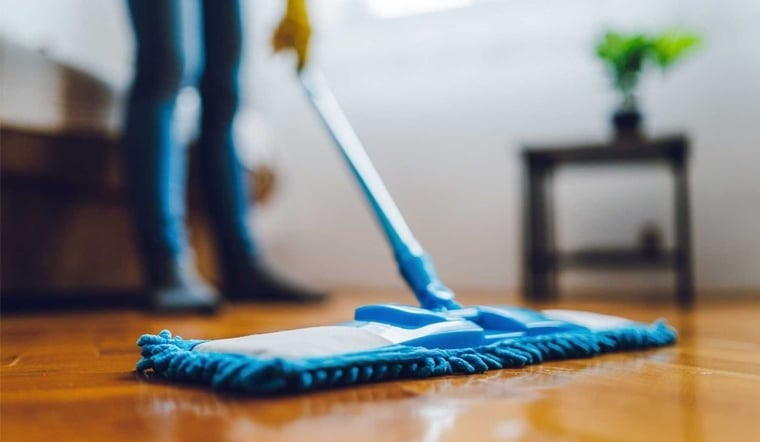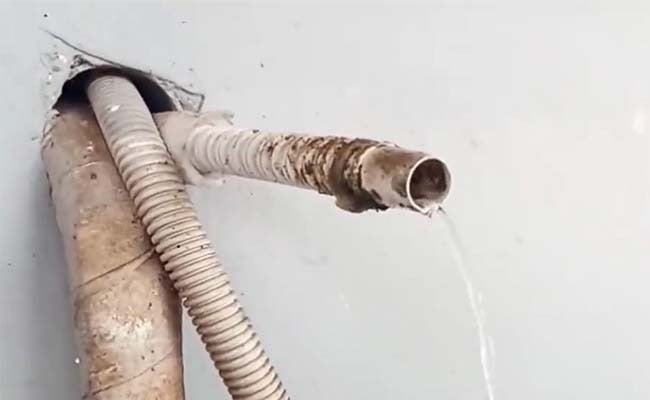During operation, the air conditioner condenses water vapor in the air and drains it outside. For a long time, air conditioner condensate has been considered dirty and discarded. However, according to experts, this type of water actually has 4 unexpected uses that humans should take full advantage of.
Why does the air conditioner have water draining out?

When the air conditioner is working, it draws in air from the room and blows it through a copper pipe system containing cold gas inside the evaporator to cool the air. During this process, condensation occurs on the outside of the copper pipes, also known as dew formation. The water that adheres to the copper pipes flows down into the drain pan and drains out. This phenomenon is similar to the phenomenon of condensation that occurs when you leave a glass of ice water for a while.
This phenomenon can be explained by basic principles of physics. When air is cooled, the saturation level of water vapor decreases significantly, and the air in contact with the copper pipes containing cold gas has a very low saturation level. Water vapor that is saturated in this area returns to a liquid state and adheres to the copper pipes. This water then drips into the drain pan and drains out through the drain pipe.
Is the water draining from the air conditioner clean?
The water draining from the air conditioner is essentially pure, so you can boil it and drink it. However, during use, you cannot avoid the build-up of dirt, bacteria, mold, or algae on the copper pipes, drain pipes, and internal parts of the air conditioner, which can be harmful. Therefore, if you want to use the water draining from the air conditioner, you need to ensure that components such as the drain pipes and air filters are thoroughly cleaned and sanitized to ensure safety.
Uses of air conditioner condensate water
+ Watering plants
The condensate water from the air conditioner is neither acidic nor alkaline. Therefore, it can be used to water plants and flowers with very good results. In addition, this type of water helps keep the soil loose, avoiding soil compaction, and promoting better plant growth.
+ Fish farming
Regularly changing the water in a fish tank is an important method to keep the fish healthy. Using air conditioner condensate water instead of regular water not only saves water but also helps the fish thrive as it contains a higher level of dissolved oxygen.
+ Cleaning

Using air conditioner condensate water to flush the toilet or clean the floor not only saves water but also improves the cleaning results. When mopping the floor, pour air conditioner condensate water into the cleaning tool, add a suitable amount of salt, and use the resulting solution for mopping. This increases the alkalinity of the water, prevents residue formation, and enhances cleaning effectiveness. If the air conditioner condensate water has an unpleasant odor, you can increase the amount of water used for mopping to add fragrance and eliminate the odor.
+ Cleaning jewelry
Air conditioner condensate water contains a high level of sodium fluoride, which can brighten and remove dust from the surface of jewelry. If your necklace, earrings, or other jewelry items are rusty or discolored, you can use this type of water to clean them. Simply soak the jewelry in air conditioner condensate water for about 6 hours, then use a cotton swab to clean them. The results will be remarkable.
Things to consider when installing air conditioner drain pipes

During operation, the air conditioner produces condensation, so properly installing the drain pipes will help the machine work efficiently and last longer. During the installation process, pay attention to the following:
+ Install the air conditioner drain pipes gradually to ensure a slope.
+ Design the path of the drain system in advance and install underground drainage pipes to enhance the aesthetics of the interior space.
+ If the air conditioner drain pipes are installed in-wall, they must be insulated with rubber to prevent heat exchange and condensation inside the wall, which can cause mold, cracks, and affect the lifespan of the machine, as the draining water is cold.






























